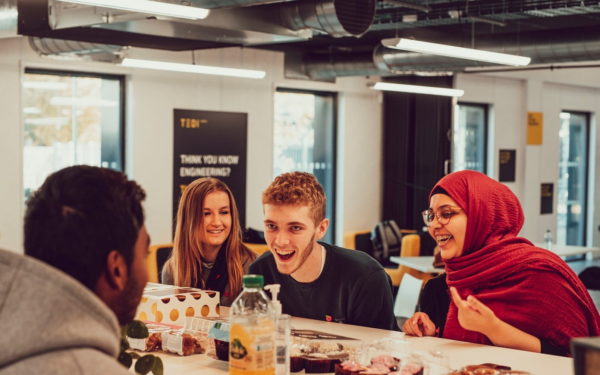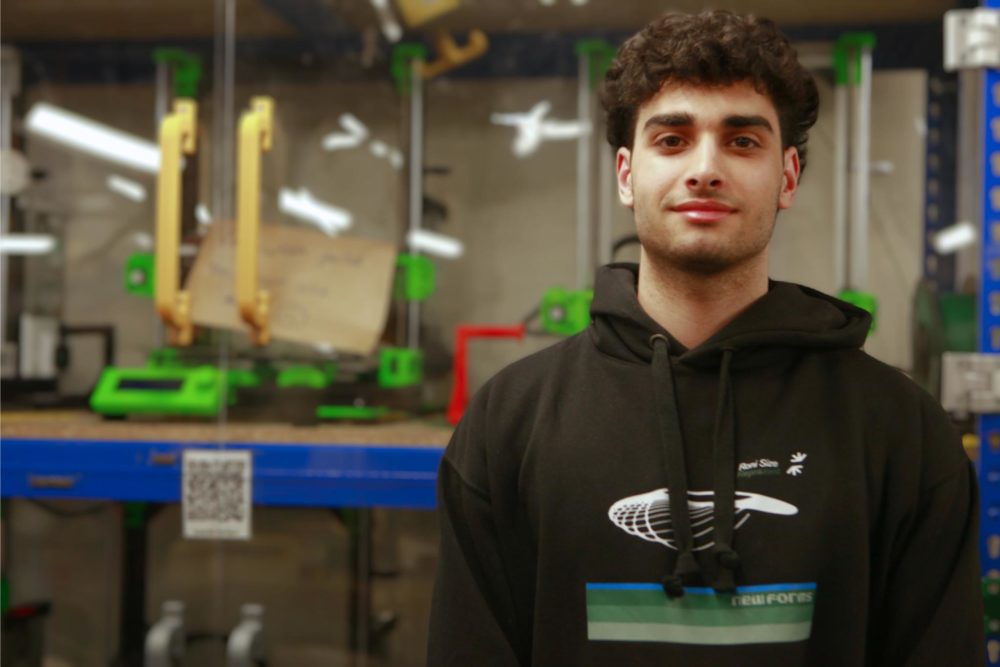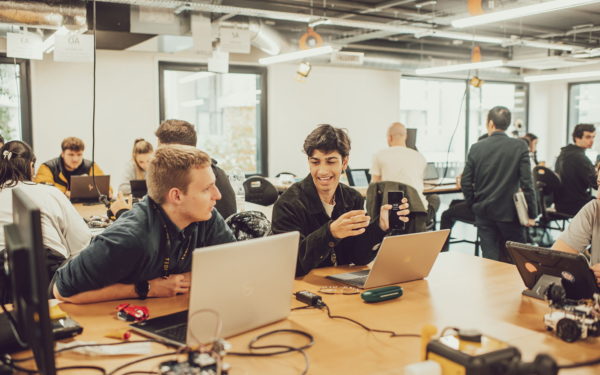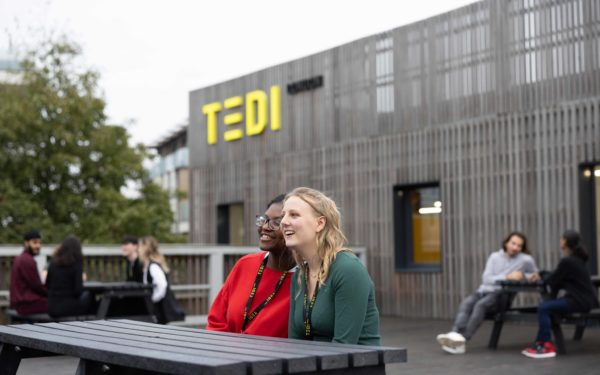
Student story: Dismantling the future

Meet Peter, a second-year student passionate about making, breaking and creating. From his early interests in physics and mathematics to his immersion in hands-on learning, Peter shares his experience of studying design engineering at TEDI-London so far.
What prompted your shift from business to engineering?
I’m originally from the United States and spent most of my early years there before moving to Exeter for my A-levels. My academic interests always included physics and maths; although I was never the top student, my skills were adequate for the subjects at the time. But my real passion lay in dismantling things. I remember taking apart remote-control cars as a child to tinker with the motors. This interest towards making and understanding how things work steered me towards engineering. Initially, I was tempted by business studies, but I chose engineering because it seemed more stable and practical, plus it’s really fulfilling.
“My transition to engineering was really about finding a path that aligned with both my interests and my skills. The idea of actually building and designing solutions, not just theorising about them, was what drew me in.”
Why did you choose TEDI-London for your studies?
TEDI-London stood out because it offered an entry criteria that was not focused on grades alone, unlike other universities. More importantly, the hands-on learning approach resonated with me. It was unlike any other programme I’d found; it focused on building and creating as opposed to purely theoretical work with minimal practice. This practical approach was evident from the start and was exactly what I was looking for.
How has the project-based learning been so far?
It’s been an immersive experience from the very beginning. We look into projects that require us to apply engineering principles in real-world scenarios right from the first day. This practical approach not only enhances our learning but also prepares us for engineering challenges outside the classroom.
What’s it like being part of the TEDI-London community?
The community is very diverse. Everyone brings different perspectives and ideas, which enhances the collaborative projects we work on. Despite being somewhat introverted, the project-based learning style has made it easier for me to connect with others.
Where do you see yourself after graduating?
I’m particularly interested in engineering with humanitarian efforts. I plan to work with start-ups focused on humanitarian aid, potentially using my engineering skills to contribute to global challenges, possibly in areas like robotics for disaster relief or sustainable infrastructure.
“I see myself at the crossroads of engineering and global aid. The skills I’m learning here are not just technical; they’re about applying engineering to make the world a better place.”
How do you think your studies will influence your career?
The education I’m receiving at TEDI-London is shaping me not just as an engineer, but as a problem solver and innovator. The skills I’m developing are versatile and will influence my future career path, allowing me to adapt to various roles that might extend beyond traditional engineering.
Learn more about studying Global Design Engineering at TEDI-London.
More Student experience articles


My summer internship: a student’s story
